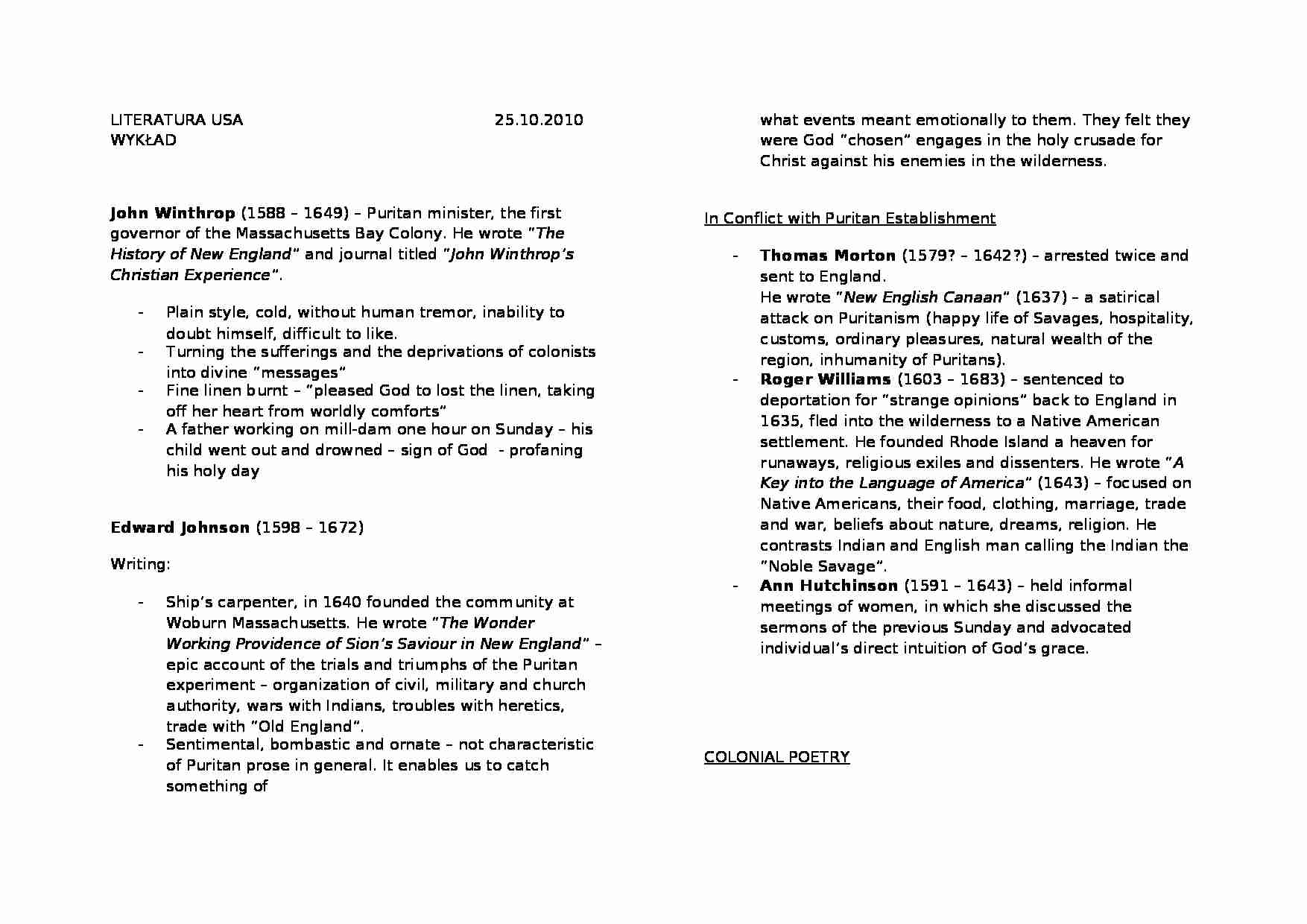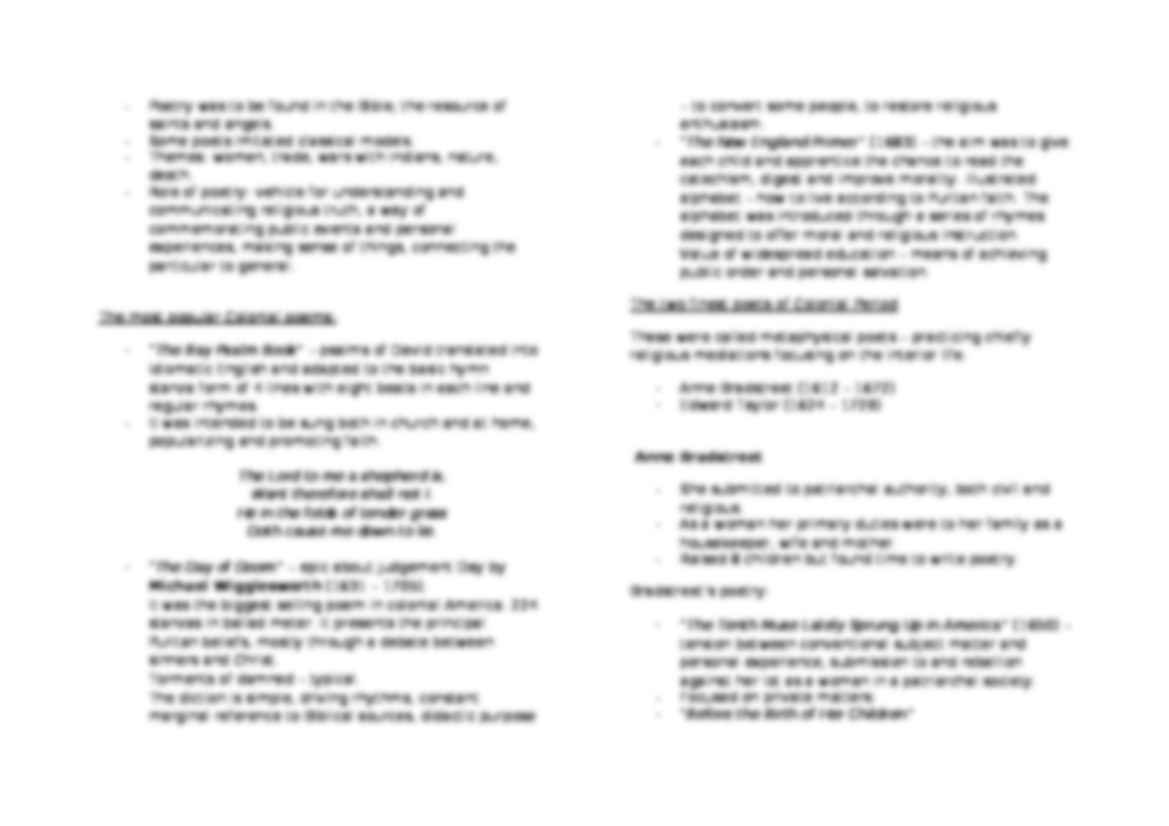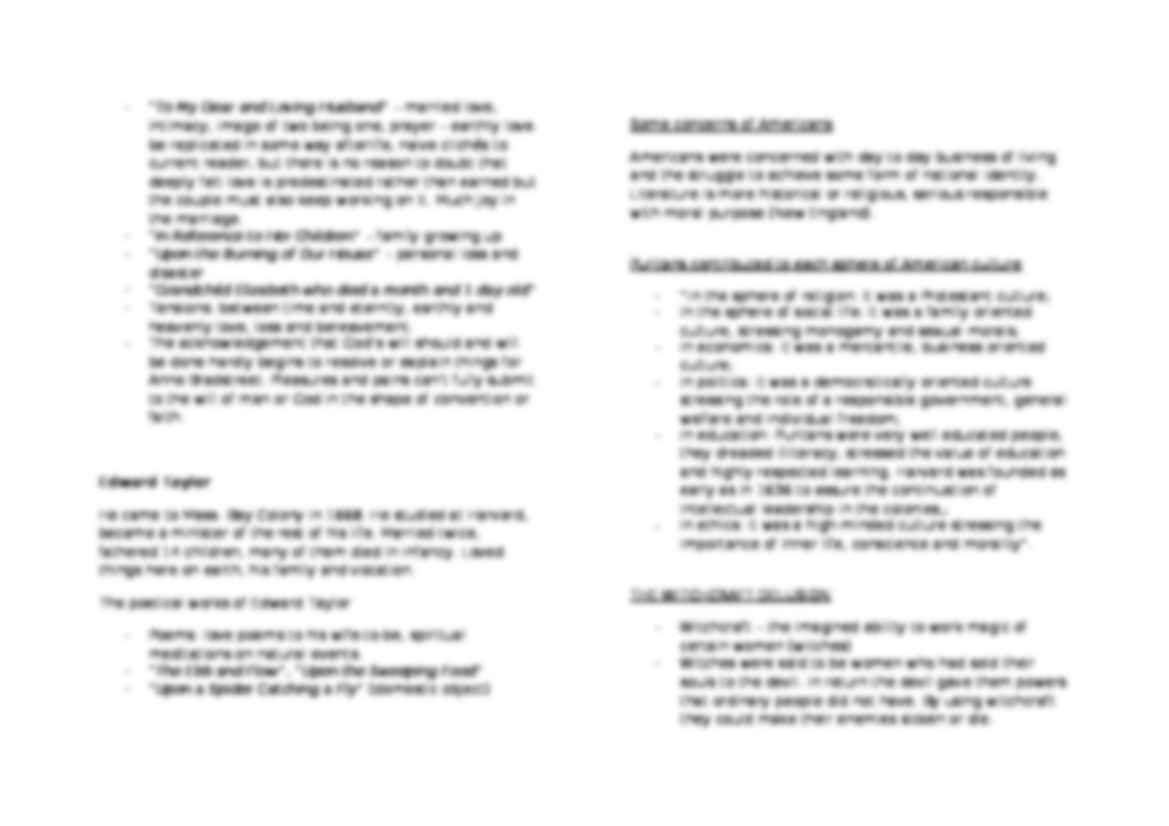LITERATURA USA 25.10.2010 WYKŁAD
John Winthrop (1588 - 1649) - Puritan minister, the first governor of the Massachusetts Bay Colony. He wrote “The History of New England” and journal titled “John Winthrop's Christian Experience”.
Plain style, cold, without human tremor, inability to doubt himself, difficult to like.
Turning the sufferings and the deprivations of colonists into divine “messages”
Fine linen burnt - “pleased God to lost the linen, taking off her heart from worldly comforts”
A father working on mill-dam one hour on Sunday - his child went out and drowned - sign of God - profaning his holy day
Edward Johnson (1598 - 1672)
Writing:
Ship's carpenter, in 1640 founded the community at Woburn Massachusetts. He wrote “The Wonder Working Providence of Sion's Saviour in New England” - epic account of the trials and triumphs of the Puritan experiment - organization of civil, military and church authority, wars with Indians, troubles with heretics, trade with “Old England”.
Sentimental, bombastic and ornate - not characteristic of Puritan prose in general. It enables us to catch something of what events meant emotionally to them. They felt they were God “chosen” engages in the holy crusade for Christ against his enemies in the wilderness.
In Conflict with Puritan Establishment
Thomas Morton (1579? - 1642?) - arrested twice and sent to England. He wrote “New English Canaan” (1637) - a satirical attack on Puritanism (happy life of Savages, hospitality, customs, ordinary pleasures, natural wealth of the region, inhumanity of Puritans).
Roger Williams (1603 - 1683) - sentenced to deportation for “strange opinions” back to England in 1635, fled into the wilderness to a Native American settlement. He founded Rhode Island a heaven for runaways, religious exiles and dissenters. He wrote “A Key into the Language of America” (1643) - focused on Native Americans, their food, clothing, marriage, trade and war, beliefs about nature, dreams, religion. He contrasts Indian and English man calling the Indian the “Noble Savage”.
Ann Hutchinson (1591 - 1643) - held informal meetings of women, in which she discussed the sermons of the previous Sunday and advocated individual's direct intuition of God's grace.
COLONIAL POETRY
Poetry was to be found in the Bible; the resource of saints and angels.
Some poets imitated classical models.
Themes: women, trade, wars with Indians, nature, death.
Role of poetry: vehicle for understanding and communicating religious truth, a way of commemorating public events and personal experiences, making sense of things, connecting the particular to general.
(…)
… Wonders of the Invisible World”. He accused ministers such as Mather of committing murder under the guise of Christianity. The book came to late to change the events in Massachusetts.
Later, Nathaniel Hawthorne used some events described by Calef.
Also Arthur Miller in “The Crucible” made use of Calef's records.
When the trials ended twenty men and women, and two dogs, had been executed for witchcraft…
… rhymes.
It was intended to be sung both in church and at home, popularizing and promoting faith. The Lord to me a shepherd is, Want therefore shall not I. He in the folds of tender grass Doth cause me down to lie. “The Day of Doom” - epic about Judgement Day by Michael Wigglesworth (1631 - 1705). It was the biggest selling poem in colonial America. 224 stanzas in ballad meter. It presents the principal…
… experience, submission to and rebellion against her lot as a woman in a patriarchal society.
Focused on private matters:
“Before the Birth of Her Children”
“To My Dear and Loving Husband” - married love, intimacy, image of two being one, prayer - earthly love be replicated in some way afterlife, naïve clichés to current reader, but there is no reason to doubt that deeply felt love is predestinated rather…
... zobacz całą notatkę






Komentarze użytkowników (0)